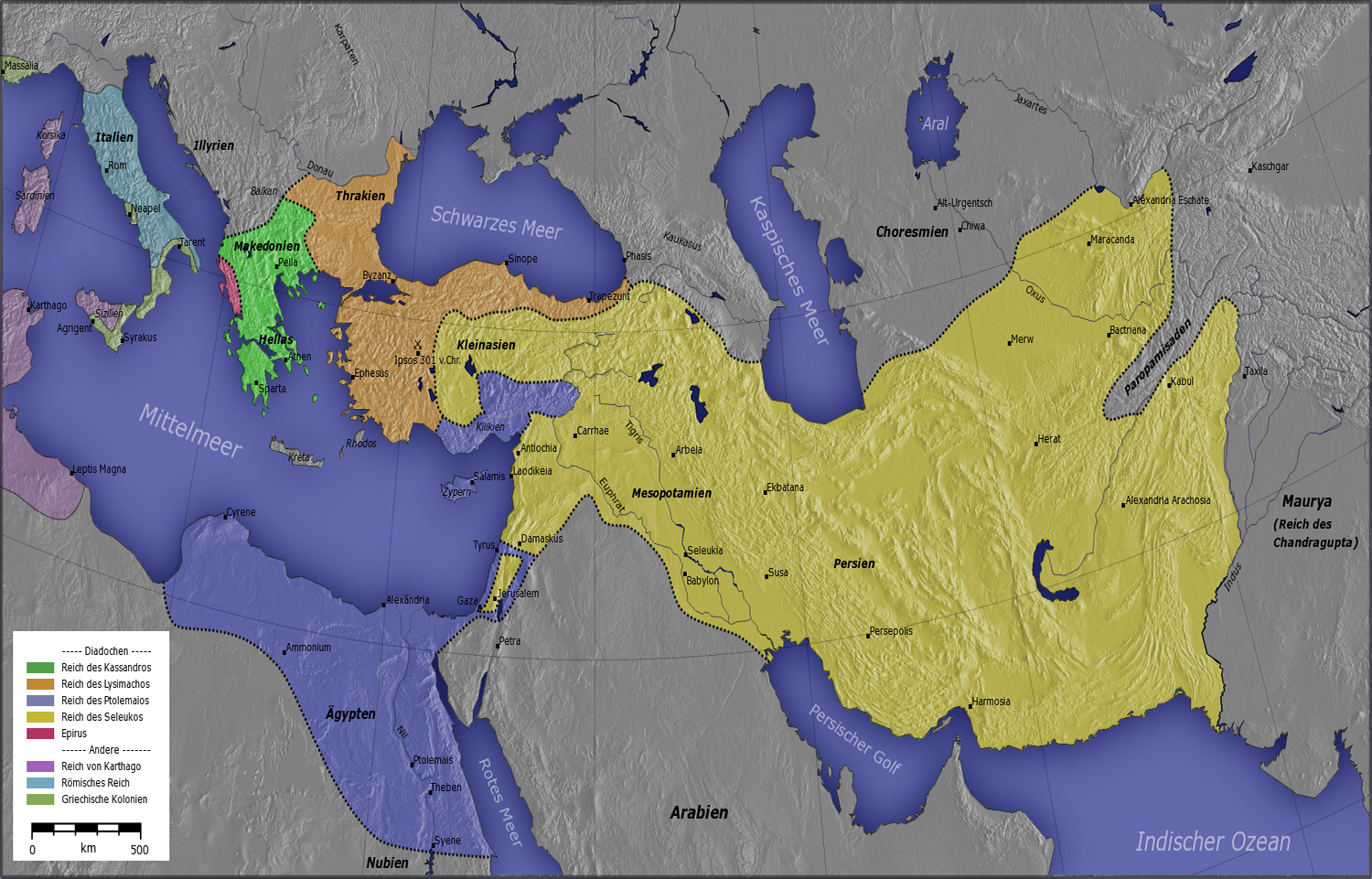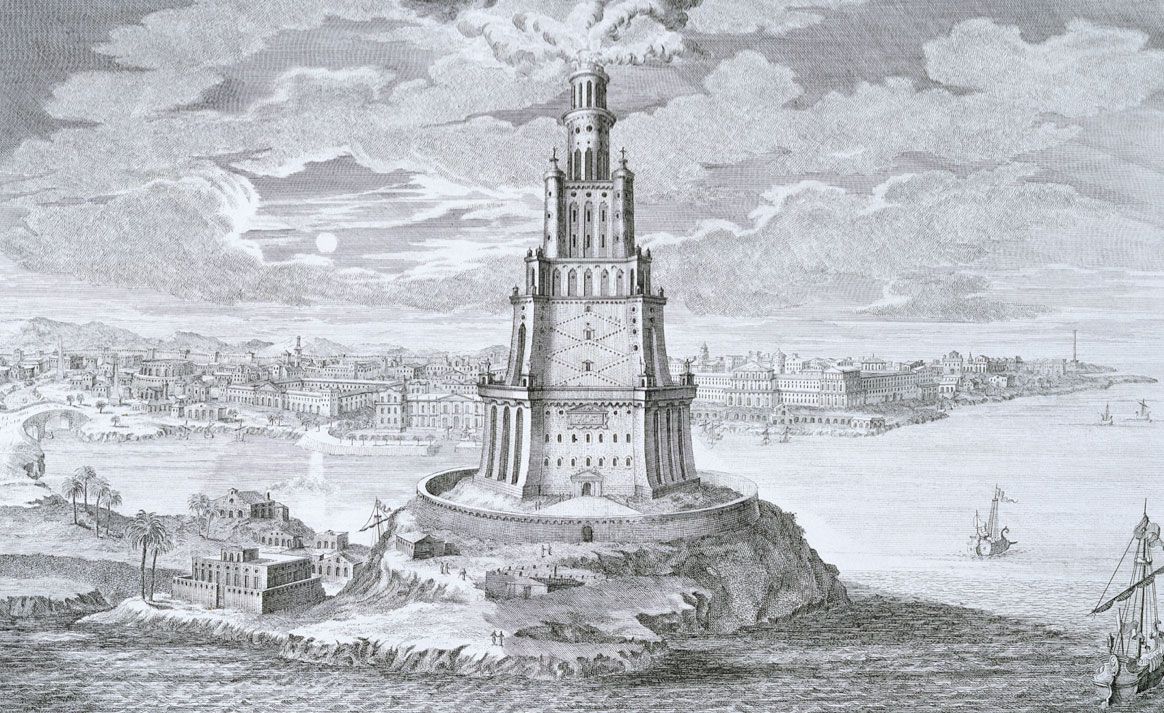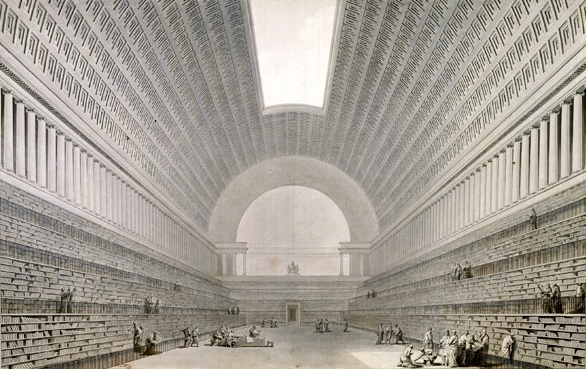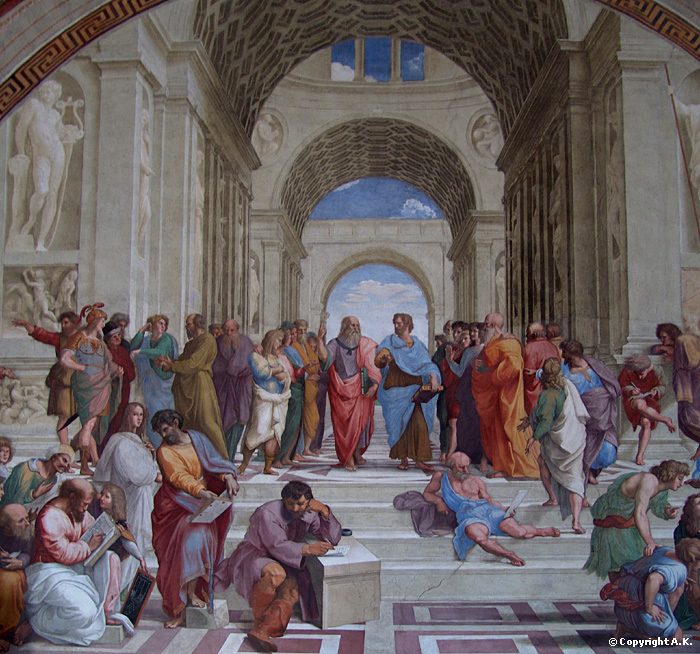Historical Eras

Alexandria at the Ptolemaic Era

Death of great Alexander, never gave him a chance to bear witness to the birth of the city that bore his name and immortalized him. It was under the rule of Ptolemy I (Soter) that the city bloomed until the rule of Ptolemy II "Philadelphus", who ruled from 285 B.C. till 246 B.C. when it became the greatest and most famous capital of the world, surpassing ancient Greek and modern Egyptian cities and a center for the Ancient World admiration.
- The Ptolemies designated Alexandria to be the capital of their rule given its unique location on the Mediterranean Sea, and its closeness to battlefields where combat among rival forces in the region could potentially break out at any moment.
- The Ptolemies chose Alexandria to be a center for spreading their belief in the Egyptian God of Serapis to the whole region, and achieved their mission with great success.
A Capital City

The Port
Alexandria had become the first Egyptian Port in deepwaters, given that it is directly located right by the sea. It had also become the meeting point and a transit for trading routes connecting Egypt with other regions it dealt with. Alexandria was also considered the first hub for Egyptian import and export industry.
Egypt started to import cedarwood from the northern Balkans and the Levant for the industry of shipbuilding. The Ptolemy imported gold from Spain and India, silver from Spain and Greece, iron from the islands of the Aegean Sea, Armenia and the entrances to the Black Sea, marble from Greek islands, and silk textiles from Phoenicia.
Egypt imported some raw materials to manufacture some products then export them to the West, such as precious stones, ivory and Ostrich feathers, in addition to its exports which included oil, wheat, papyrus, and glass products, which were originally Egyptian products.

A Beacon for Science and Culture
During the Ptolemaic era, two significant institutions were founded between 288 and 280 B.C.. These institutions are:

The Society
The Ptolemies aimed to support their rule with the largest number of skilled people, therefore, they encouraged Greeks to emigrate to Egypt and, particularly, to Alexandria to provide the city with the most efficient workforce and work in all fields
Alexandria became mainly populated with Egyptians, Greeks and Jews. Egyptians represented the larger segment of the society. However, Egyptian Alexandrian citizens never had the same rights as Greek ones, who enjoyed a privileged status given that Greeks were formally considered the elite, while Jews and Egyptians did not have a right to citizenship
Political Organization
Two main political trends dominated the political scene in Alexandria during the Ptolemaic Era:
The political system was supposed to combine both the central and popular systems, but the international instability forced the Ptolemies to give a priority to the central rule system. Thus, principal public services remained under central rule, including foreign policy, economic matters, security, research and cultural activities while local councils dealt with day-to-day affairs.
In addition to the Macedonian and the Alexandrian Councils, an Advisory Council also existed in the city of Alexandria.

